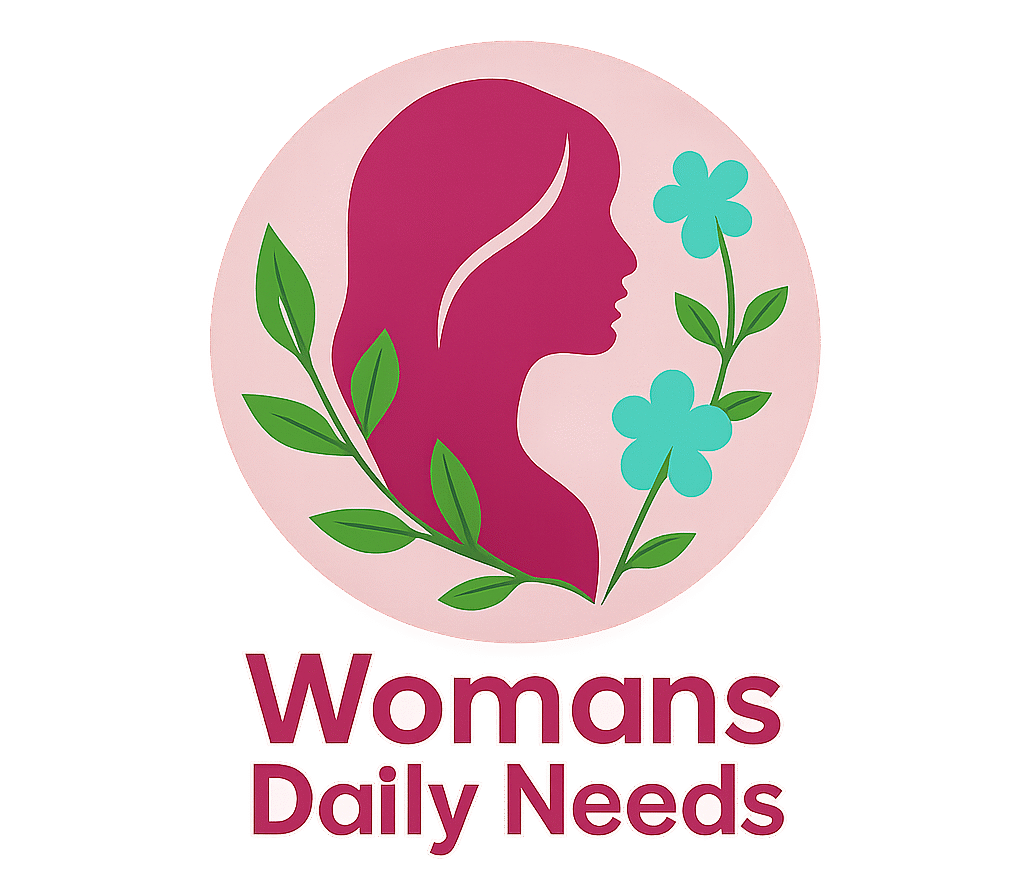Healthy Boundaries In Friendship
Healthy boundaries in friendship help everyone feel respected, safe, and understood. Setting boundaries might sound tricky, but it actually makes relationships more genuine and enjoyable for everyone involved. I’m here to break down what healthy boundaries mean for friendships, what they look like, and how you can smoothly weave them into your own life.

Understanding Healthy Boundaries in Friendship
Boundaries are your way of defining what feels comfortable for you in relationships. In friendships, these invisible lines show what you’re okay with—and what you aren’t. Think of boundaries as a basic rulebook for how you want to be treated. If you’re curious about how boundaries impact mental health, this article on Woman’s Daily Needs digs even deeper.
Setting boundaries often gets a reputation for being harsh or unfriendly, but it’s actually just the opposite. When you’re honest about your needs, it helps friends understand you better and helps everyone feel secure. In fact, studies by the American Psychological Association show that clear boundaries boost well-being and help decrease drama or resentment in friendships. Communicating boundaries supports the kind of friendship most people want: one that’s laid-back, safe, and kind.
Key Signs of Healthy Boundaries with Friends
If you’ve ever left a hangout feeling exhausted or just “off,” you might be missing some boundaries. Here are some easy to spot signs of healthy boundaries in friendship:
- Comfort Saying “No”: You can turn down invitations without feeling guilty or fearing that your friend will be upset.
- Respect for Privacy: You and your friend don’t expect access to every detail of each other’s lives.
- Personal Space: Each person leaves room for the other to hang out with different people or do solo activities without hurt feelings.
- Open, Honest Communication: Both people can talk openly about how they feel, what bugs them, and what they enjoy—without anyone getting defensive.
- No Guilt Trips: No one tries to manipulate or guilt the other into doing something they don’t want to do.
Healthy boundaries often look different in every friendship. What matters most is that everyone feels respected and nobody’s needs are overlooked. For example, one person may be fine texting every day, while another may just want to check in weekly. Being able to express and agree on these preferences is a sign of a strong friendship.
How to Set Boundaries in Friendship That Actually Work
Learning how to put boundaries in place might feel awkward at first. Here are some practical ideas to help you out:
- Get Clear With Yourself First: Before talking to your friend, figure out what you want and what doesn’t feel good. Maybe you need more alone time after work, or you don’t enjoy late night texts. (More ideas on setting boundaries for yourself can be found here at Psychology Today.)
- Communicate Directly and Kindly: When you’re ready, just share how you feel. Keep it gentle and use “I” statements, like “I need time to recharge alone after work, so I might not answer texts right away.”
- Be Consistent: Boundaries only work with follow-through. If you say you can’t hang out every night, stick to your decision. That way, friends know you mean what you say.
- Expect Some Adjustments: Friends might need a little time to adjust; they might not even realize you felt uncomfortable. Patience smooths out these transitions.
- Revisit and Adjust: Boundaries aren’t set in stone. As your friendship grows or your life changes, your needs could too. It’s okay to reevaluate what feels best and chat about any changes.
Practicing these steps makes boundary setting smoother each time. The more you speak up about your needs, the easier it becomes for friends to do the same.

Common Challenges When Setting Friendship Boundaries
Even though healthy boundaries are good for everyone, setting them sometimes brings up tough feelings or pushback. Here are a few situations I see pop up, plus some thoughts on handling them:
- Worry About Offending: You might stress about sounding “mean,” but being polite and clear keeps feelings less tangled and helps avoid miscommunications.
- Pressure to Agree: Some friends might not get your new boundaries at first, especially if they’re used to hearing “yes” all the time. Stick to what feels right for you, but try to listen to their perspective too.
- Guilt: Guilt is normal, especially if you’re used to making others happy. Remember that your needs count too—and your real friends will get that.
Sometimes, outside support like counseling or self-help articles can be super helpful if you’re unsure how to keep boundaries with assertiveness and care. Handling pushback or tough emotions takes practice, but gets easier with time.
Being upfront and calm about your needs, while listening to your friend’s, helps everyone feel heard. If you run into a really tough friend dynamic, there are more resources at Woman’s Daily Needs on ending a friendship if things ever need to go that route.
Why Healthy Boundaries Matter in Every Friendship
There’s a big myth that close friends are supposed to have zero secrets or do everything together. In reality, even the best friendships need space and personal time. With boundaries in place, friendships actually get closer because everyone can relax and just be themselves, without pressure.
Good boundaries also make it easier to:
- Stay true to yourself without changing just to please others
- Say yes because you want to, not out of guilt or pressure
- Keep resentment and burnout low by protecting your emotional space
- Support one another honestly through ups and downs, knowing where each person stands
Research published in the International Journal of Environmental Research and Public Health found that friendships with mutual respect and clear boundaries help people manage stress and bounce back from life’s challenges more effectively. When everyone knows the expectations, it’s easier to communicate and share life’s milestones and struggles.
Boundaries also allow friendships to adapt. As life changes—with new jobs, moves, or families—clear boundaries make it easier to maintain your connection through the shifting times. Both people feel respected, and misunderstandings are less likely to build up.
Tips for Respecting Friends’ Boundaries Too
Boundaries work both ways. Respecting what your friend needs helps things stay balanced and supportive. Here are some easy habits that make a big difference:
- Ask Before Pushing for Details: If your friend goes quiet or seems distant, give them space without pressing for information. Respect their privacy and wait for them to share when they’re ready.
- Check In: If you feel like you might have crossed a line, just ask. “Was that okay?” or “Is this a good time?” is usually all it takes to show you care.
- Don’t Take Things Personally: A friend saying “no” is usually about their needs, not about you or your friendship.
- Encourage Honesty: Let your friend know it’s always safe for them to speak up, even when they disagree or need space.
You’ll sometimes notice small changes, like friends spending a weekend apart or being upfront about what they need. These are all positive steps that keep friendships healthy and low-stress. Supporting each other’s boundaries is the ultimate sign of respect between friends.

Frequently Asked Questions About Boundaries in Friendship
Question: My friend is upset that I’ve started setting boundaries. What can I do?
Answer: It’s normal for friends to feel surprised at first, especially if they’re not used to it. Stick with your boundaries, but also give your friend a chance to ask questions. Open, gentle conversations usually smooth things over once everyone adjusts. It takes a little time but open communication helps.
Question: I’m worried that setting boundaries will ruin my friendships. Should I just avoid it?
Answer: Setting boundaries might feel awkward at first, but friendships built on respect last longer. True friends appreciate knowing what you want and need—it actually helps everyone get along better over time.
Question: Are there times when boundaries mean ending a friendship?
Answer: Sometimes, if your boundaries aren’t respected even after clear talks, it may be time to reevaluate the friendship. It’s okay to outgrow friendships that become one-sided or unhealthy. More advice on this is available at 10 signs it may be time to end a friendship.
Healthy Boundaries Help Friendships Grow
Finding and respecting healthy boundaries in friendship helps everyone feel secure, understood, and happy. Boundaries let friends be honest, grow together, and enjoy plenty of fun times without hidden resentment or awkwardness. If you’re curious about building up your overall wellness or want to check out more on healthy relationships, Woman’s Daily Needs has tips worth checking out. Friendships thrive when everyone can be themselves, and clear boundaries are the foundation for that kind of connection.

- Facebook: https://www.facebook.com/Womansdailyneeds (facebook.com)
- Instagram: https://www.instagram.com/womansdailyneeds/ (instagram.com)
Kiersti writes on self-love and personal development professionally. Over the past ten or so years, she has studied self-love and personal growth. Visit https://womansdailyneeds.com/ to learn more about what she does, and like her on Facebook at https://facebook.com/womansdailyneeds to keep up with her.
